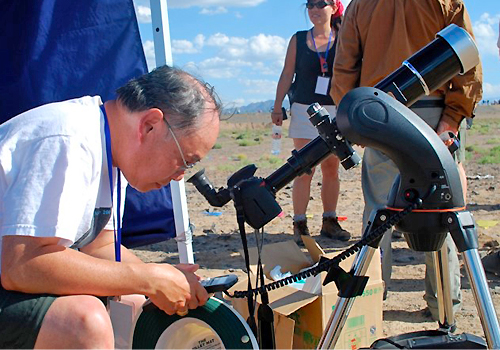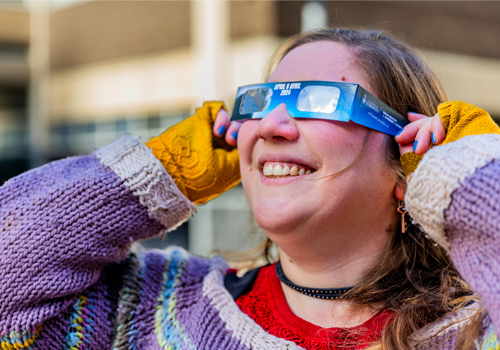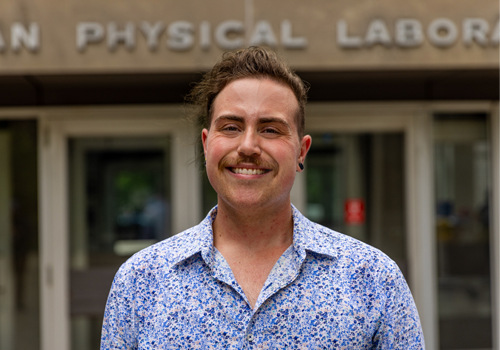U of T astronomers and scientists have long been excited for Eclipse 2024, a total solar eclipse on April 8 that will be visible from parts of southeastern Ontario and Quebec, and eastern Canada.
Here they explain why this celestial event is not to be missed.
I’ve witnessed dozens of total solar eclipses in my lifetime. The most memorable ones include the time in South America where farmers would come out into the fields during the middle of the eclipse and fire their shotguns that would, according to ancient beliefs, scare away the demon that was devouring the sun. Or hearing the roosters crowing in the background as they tried to figure out why it was suddenly night and then starting to become day again. — Ralph Chou, World-renowned expert on viewing solar eclipses safely, BSc, Astronomy 1973

I've never experienced a solar eclipse myself, but, apparently, totality is a whole other ballgame. The moon's shadow is completely covering the sun, which means that suddenly the sky gets very dark, you can see stars in the sky, the birds go quiet because they think it's nighttime and you notice this drastic change in temperature. Whether or not you study the sun, that physical experience of watching the sun being totally covered up is life changing. — Ilana MacDonald, Public Outreach, Communications & Events Strategist, Dunlap Institute for Astronomy & Astrophysics, PhD Astronomy, 2013

In 2012, I took my whole family to see the total solar eclipse in Australia. My in-laws and husband had never seen one before, and I think they all thought my obsession with the sky was a little weird. But then they saw the eclipse and they finally understood what all the fuss was about. — Kirsten Vanstone, Head of Operations, Fields Institute for Research in the Mathematical Sciences, BSc Astronomy, 1994

Cameras and recordings do a really good job of capturing visual information, but they're not capturing the drop in temperature, they're not capturing the entire change of colours in the landscape. There's so much to take in. I’m also intrigued by the idea that solar eclipses aren’t finite. The moon and the Earth are slowly drifting apart and one day — millions of years from now — total eclipses won’t be a thing anymore. — CJ Woodford, Education Coordinator at Discover the Universe, PhD, Physics, 2020
In 2017, I ran an eclipse-viewing event with 10,000 people and we had attendees from all walks of life there observing the sun safely. It was a blast. But it also completely burned me out. I do want to find somewhere without a lot of clouds to see it for myself. — Kelly Lepo, Education and Outreach Scientist at the Space, Telescope Science Institute, PhD Astronomy, 2015

